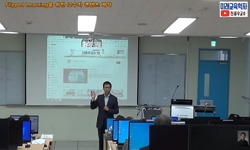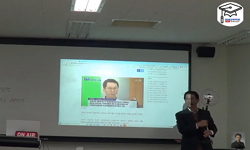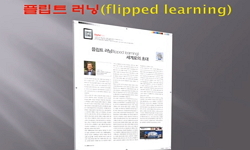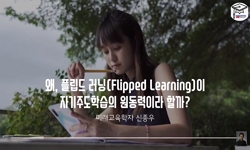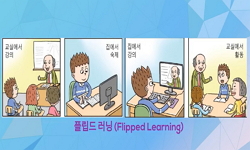- Although various studies on the effectiveness of class using flipped learning and instructional design have been attempted, there are few cases where learning engagement factors have been explored from the perspective of learners participating in classes. Therefore, in this study, we would like to explore the factors that affect learning commitment in flipped learning. Engagement varies depending on the degree of motivation experienced and felt by learners, so it was considered as a method of grounded theory to explore learning engagement factors in a situation learning-based university flipped learning environment. As a result of this study, the core categories and types of college students’ flipped learning stories include ‘learning context consistent with individual interests and goals’, ‘learning content that affects the entire learning process’, ‘learning environment to communicate online and share in classrooms’, and ‘learning strategies according to learners’ personal resources.’ It was found that basic psychological needs affect learning commitment through the process of hypothesizing formalization of key categories. It is meaningful that the model was presented based on the derived theory, and based on this, the instructor presented implications for instructional design in consideration of the learner’s basic psychological needs when planning the learning environment.
http://chineseinput.net/에서 pinyin(병음)방식으로 중국어를 변환할 수 있습니다.
변환된 중국어를 복사하여 사용하시면 됩니다.
- 中文 을 입력하시려면 zhongwen을 입력하시고 space를누르시면됩니다.
- 北京 을 입력하시려면 beijing을 입력하시고 space를 누르시면 됩니다.

대학 플립러닝 환경에서 학습몰입 요인의 질적 탐색 = Qualitative Exploration of Learning Engagement Factors in University Flipped Learning Environment
한글로보기https://www.riss.kr/link?id=A109045540
- 저자
- 발행기관
- 학술지명
- 권호사항
-
발행연도
2024
-
작성언어
-
- 주제어
-
KDC
370
-
등재정보
KCI우수등재
-
자료형태
학술저널
- 발행기관 URL
-
수록면
29-57(29쪽)
- 제공처
-
0
상세조회 -
0
다운로드
부가정보
목차 (Table of Contents)
- Although various studies on the effectiveness of class using flipped learning and instructional design have been attempted, there are few cases where learning engagement factors have been explored from the perspective of learners participating in classes. Therefore, in this study, we would like to explore the factors that affect learning commitment in flipped learning. Engagement varies depending on the degree of motivation experienced and felt by learners, so it was considered as a method of grounded theory to explore learning engagement factors in a situation learning-based university flipped learning environment. As a result of this study, the core categories and types of college students’ flipped learning stories include ‘learning context consistent with individual interests and goals’, ‘learning content that affects the entire learning process’, ‘learning environment to communicate online and share in classrooms’, and ‘learning strategies according to learners’ personal resources.’ It was found that basic psychological needs affect learning commitment through the process of hypothesizing formalization of key categories. It is meaningful that the model was presented based on the derived theory, and based on this, the instructor presented implications for instructional design in consideration of the learner’s basic psychological needs when planning the learning environment.
동일학술지(권/호) 다른 논문
-
국제 바칼로레아 초등 프로그램(IB PYP)의 종단적 효과: 초등학생의 학업성취도와 학습동기에 미치는 영향
- 한국교육학회
- 이민혜(Minhye Lee)
- 2024
- KCI우수등재
-
수업 체계성과 일관성이 대학생의 학업 성취도에 미치는 영향 분석
- 한국교육학회
- 이수지(Suji Lee)
- 2024
- KCI우수등재
-
부모의 양육태도와 유아 문제행동의 메타분석: 메타구조방정식 모형의 적용
- 한국교육학회
- 정선영(Seon Yeong Jeong)
- 2024
- KCI우수등재
-
중・고등학교 시기 사교육 및 자기주도학습 시간의 종단적인 변화에 따른 집단 분류 및 대학교 시기의 핵심역량에 대한 영향 분석
- 한국교육학회
- 이슬기(Seul Gi Lee)
- 2024
- KCI우수등재




 KCI
KCI 스콜라
스콜라